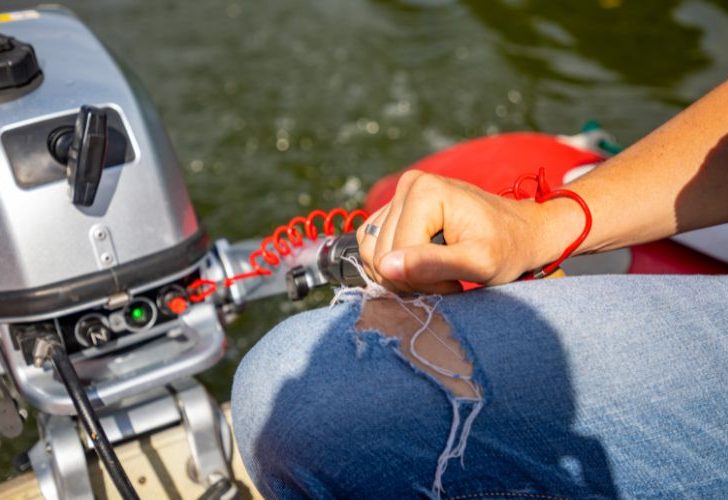You’re out on the water, enjoying a great day of fishing or boating. Suddenly, your outboard motor starts surging.
You don’t like the way it sounds. You want to know what is causing the problem and how to fix it.
You’ve come to the right place!
Keep reading to learn more about what causes surging in outboard motors.
Table of Contents
Engine Surging: What Is It?
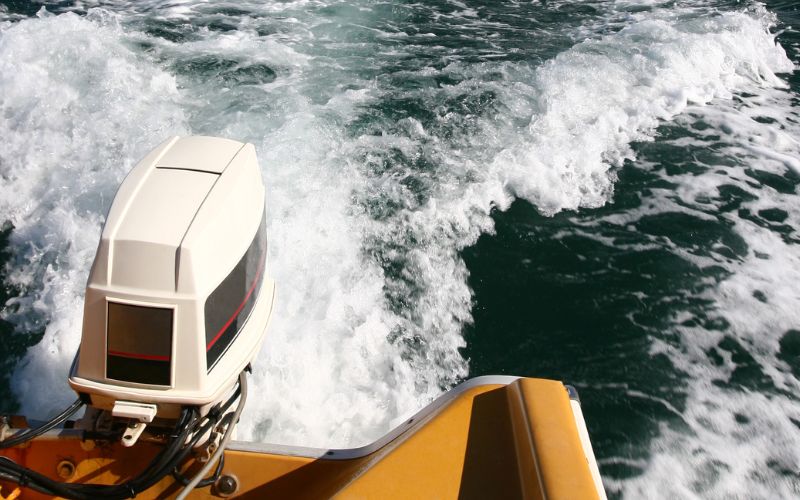
Engine surging is a phenomenon that isn’t limited to outboard motors. Engines in cars, motorcycles, and lawnmowers can also surge.
But what exactly does it mean when we talk about engine surging?
Basically, engine surging is what it’s called when your engine jumps back and forth between high and low RPMs.
You may notice the needle on your tachometer bouncing around from high to low, then back to high again. Or you may simply hear changes in the way your motor sounds.
A surging engine may sound like it’s being revved up one moment, then like it’s idling the next. Or it may sound like it’s working harder than it should be at a given speed setting.
Whatever your specific symptoms, you may think that the motor just “sounds off.” If you notice that your motor doesn’t sound quite right, a surging engine may be to blame.
Why Does My Outboard Motor Surge?
You’ve determined that your outboard motor is surging. Your next question will probably be, what is causing the problem?
There are several issues within the motor that may cause it to surge. The surging may be related to a problem with the airflow, the fuel, spark plugs, or the carburetor.
Let’s take a closer look at each of these issues.
1. Airflow Issues
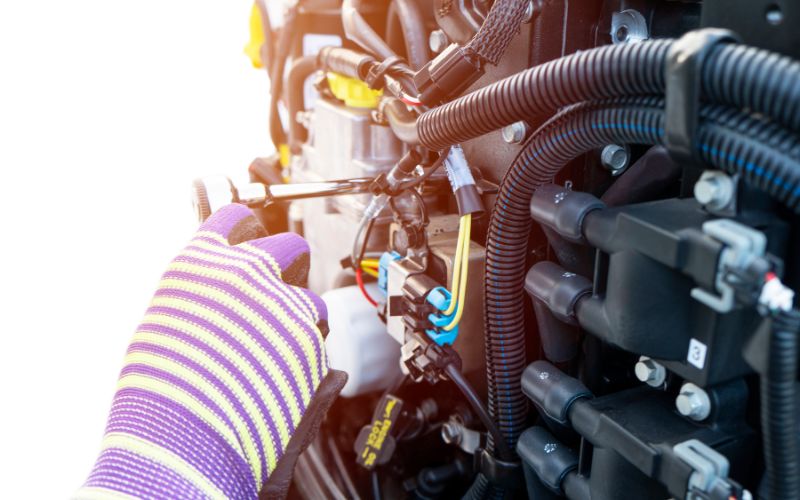
Engines need proper airflow. Air from the outside environment is continually pulled into the engine, mixed with fuel and oil, then delivered to the combustion chamber to create the burst of power needed to run the engine.
Of course, outside air can be dirty, and sometimes the air intake valve becomes clogged with debris or buildup.
What’s more, an internal problem with the engine may cause it to pull in the wrong amount of air, or no air at all.
Regardless of what is causing the problem, the results are the same: the motor is not getting the proper amount of air. This can cause a multitude of problems, including engine surging.
2. Bad Fuel
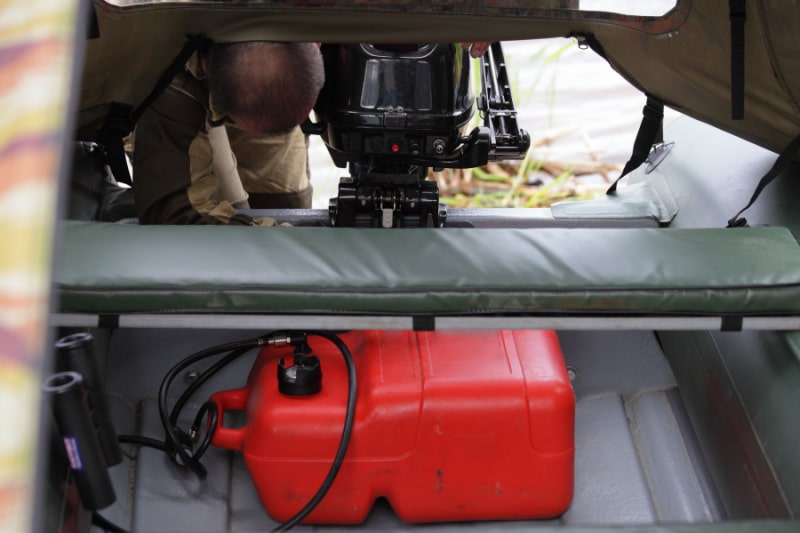
Has your outboard motor been sitting unused for months on end? If so, hopefully you drained the fuel before storing it away.
If you didn’t drain the fuel, then it’s possible that old or contaminated fuel is causing the motor to surge.
Ideally, fuel in a tank should be used up within 6 months. Beyond that time, it may become thick and gummy, which in turn may plug up the fuel lines or other parts of the engine.
Even if the fuel is newer, it can become dirty or full of debris if your fuel tank, pump, or lines are old and corroded.
Both old fuel and dirty fuel can cause your engine to surge, as well as a plethora of other issues.
3. Faulty Spark Plugs
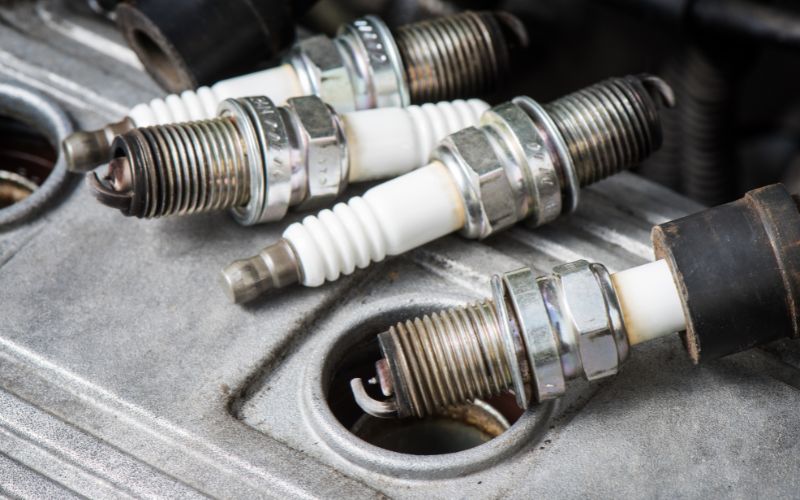
Spark plugs are essential for a motor to function properly. If they aren’t firing as they should during every cycle, your motor may start to surge.
Broken spark plugs will either misfire or not fire at all. Old spark plugs that have been worn down or become caked in debris may also not work properly.
If one or more of the spark plugs aren’t working, the fuel may not combust consistently. This inconsistent combustion is one of the most common causes of engine surging.
4. Carburetor Problems
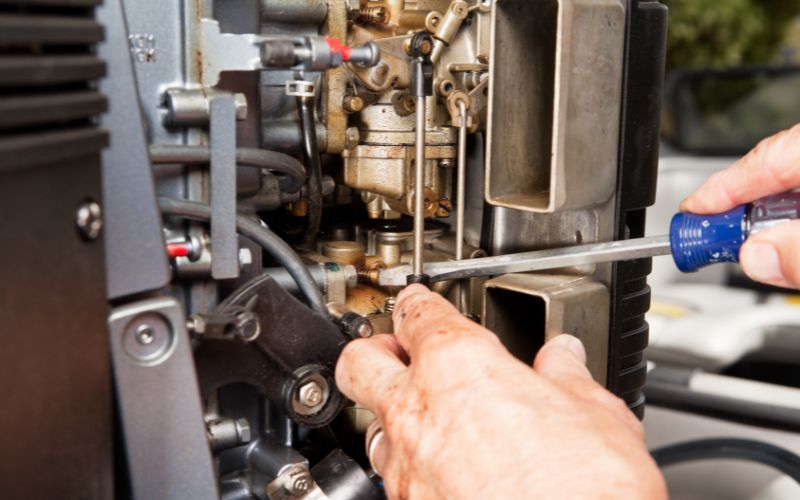
Most newer outboard motors have fuel-injection systems rather than carburetors. But, if you have an older unit, a problem with the carburetor may be behind your engine surging problems.
The carburetor is a major component of any carbureted engine–it ensures that the right amount of air, fuel, and oil are being sent to the motor. If it isn’t doing its job, then a host of issues may come up, including surging.
How Can I Fix Outboard Motor Surging?
Now that you know the various issues that may be causing your motor to surge, how can you identify which one is causing your specific problem? And what can you do to fix it?
Diagnosing your engine surging issues is a matter of going through, one by one, and checking each component that could be causing the problem.
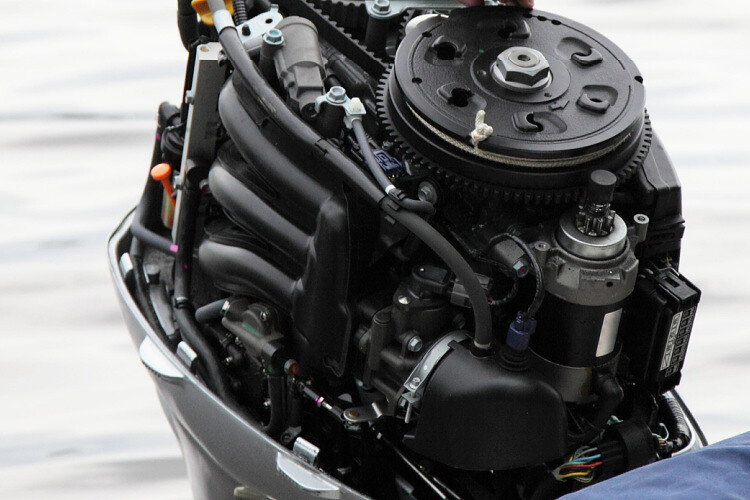
Start by checking the airflow and making sure that nothing is clogged. If you find a clog or a lot of buildup, clean the area and see if the problem is resolved.
If your engine continues to surge, check the fuel quality. Remember that dirty, old, gummy fuel can cause a lot of problems and should be replaced with clean fuel immediately.
If the fuel is dirty, you may also want to check the components of the fuel system such as the pump and fuel lines. If any of them are corroded or clogged, they will need to be cleaned or replaced to keep them from contaminating your fuel in the future.
If the fuel or fuel system aren’t causing the problem, check your spark plugs one at a time. Start by visually inspecting them to see if they are covered in gunk or appear broken.
Even if they all look fine, test their sparking ability by pulling out one plug at a time while the engine is running. If you notice any change to the sound or quality of the running engine, the spark plug you just removed is likely faulty.
There are many carburetor issues that may cause your engine to surge. The easiest thing to try is simply adjusting the carburetor, as shown in the following video:
If that doesn’t work, the carburetor may need to be cleaned or rebuilt. These are more advanced skills; if you are unfamiliar with working on motors, you may want to take your outboard to a small engine specialist.
If you suspect carburetor issues, or you have tried all of these fixes and nothing seems to stop your motor from surging, your best bet is to have it examined and serviced by a professional.
Conclusion
There are many issues that could cause your outboard to surge. These include problems with the airflow, fuel, spark plugs, or carburetor.
You can fix many of these issues simply by cleaning blocked air intake valves, replacing old or dirty fuel, or testing the spark plugs. Carburetor issues most often require professional adjustment.

I created this site to help people – to help you – with your boat problems. Instead of helping one person at a time, I want this website to be the “one-stop-shop” for everyone’s boating concerns. Read more.

